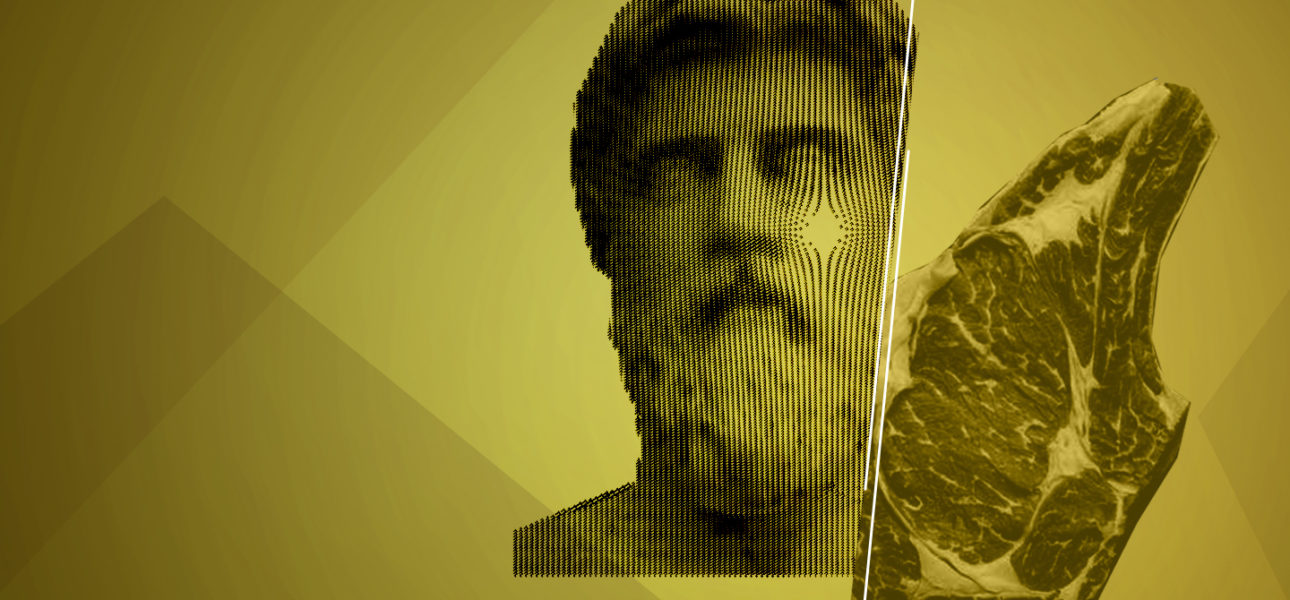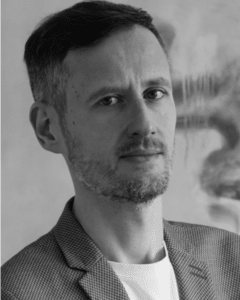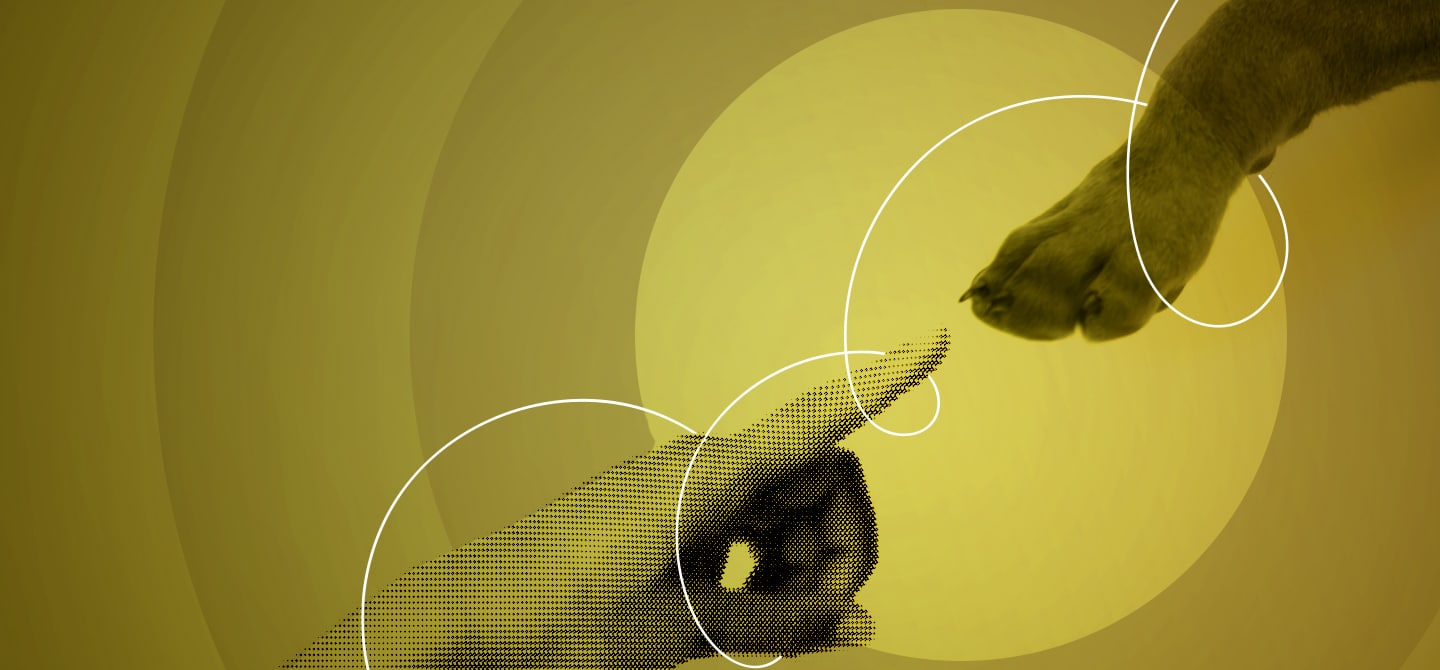Ancient philosophers were known to harbour hard criticism towards our relationship with animals. In my opinion, this is perfectly illustrated by the fundamental philosophical movement developed by Aristotle (384–322 BC). At the beginning of Metaphysics, he wrote that our thirst for knowledge is a part of human nature. There are two elements of that, which we will focus on here. The first, which was a priority for our ancestors, raises the question “what is an animal?”. The second, which seems more urgent today, involves our interaction with animals. The second question stems from the first so we need to begin by clearly defining what animals are, to know how we must interact with them.
Physical sacrifice or moral elevation?
In the contemporary world, when people opt not to eat animals, this choice is seen as a sacrifice in the name of animal well-being. For vegetarians and vegans, what is usually being sacrificed is the pleasure of taste. But also, the health benefits supposedly associated with eating animal products – an assumption which I do not share. These reasons differ from the motives behind vegetarianism in antiquity because, in most cases, ancient ethical values include a utilitarian dimension which is inconsistent with this notion of sacrifice.
When a philosopher in Greco-Roman antiquity declared himself a vegetarian, what he was demonstrating above all was an ethical choice, particularly tied to personal purity. Indeed, the act of slaughtering animals was thought to, among other things, poison the soul. Therefore, ancient philosophers who were the most sensitive to animal issues, like Plutarch (approx. 46–125 AD) and Porphyry (approx. 233–305 AD), considered the personal dimension. By respecting animals, they considered that they were acting in a way that allowed them to uphold moral values. They recognised the personal benefits (especially for human health), but also collective implications, meaning the impacts for humanity as a whole and its relationship with other species.
The question of our relationship with animals appeared early on in the works of the very first Greek philosophers. In the Pythagorean tradition, which is very ancient, some foods were prohibited. As for Heraclitus (535–475 BC), he left a fragment in which he wrote that purification rituals using animal sacrifice and blood result in poison of the souls of those who perform them (fr. 5 Diels-Kranz). It is surely not a vegan precept in the strict sense; however it already shows a growing awareness that was later developed upon by Plato.
Are humans a distinct animal species?
In Plato’s Republic (369b-376e, particularly 372b‑d), the first Greek city model imagined by Socrates requires that its people only eat plants. This model was later dismissed and replaced by a more complex project: a city where people can maintain a sense of luxury, even in times of war. Socrates defines this second city as “operated by the inflammation of moods” (tr. L. Robin), whereas the first, whose population is vegetarian, is “true” and “healthy”. This shows the value placed on the personal, social, and general philosophical implications of a vegetarian diet.
Protagoras, another text written by Plato, is also pivotal in the context of our discussion. The myth of Prometheus presented in this dialogue examines the origin of living beings. Epimetheus, Prometheus’ brother, oversees the allocation abilities and traits to living beings so that they might protect themselves. He gives great size to some animals, to others he offers claws or fur. When it is time to attend to humans, he realises that he has nothing left to give. That is when his brother Prometheus steals fire and technical knowledge from the gods and bestows them to humans to ensure their survival. Therein lies, in my opinion, the fundamental approach to animals in Greek philosophy: it is at its core founded on a genuine dialectic between homogeneity and alterity. Homogeneity because we are all mortal beings who need abilities and attributes to survive, and alterity in the sense that humans are endowed with skills and tools that, in their opinion, distinguish them from the animal world.
An outdated basic need
At the end of Antiquity, there are two crucial moments in the history of this debate stemming from the thoughts of the two aforementioned authors, Plutarch and Porphyry. They explicitly addressed the issue of the human-animal relationship and spoke out against the slaughter of animals and meat consumption. In my view their stance is profoundly modern, especially in the work of Plutarch. For the latter, meat consumption resulted from a particular need which arose at a specific moment in the history of humanity. Our mistake was making this momentary need a habit and then believing that it was in our nature to eat meat. In reality, argues Plutarch, this need determined what can be called a second nature against nature. Indeed, Plutarch unveils a crucial mistake that we make when eating animals: regarding them as food implies an ontological distortion, in the sense that we consider animals, which are living beings, as inanimate objects.
In other words, we reify animals. This view is in line with the contemporary thinking on cognitive dissonance and the fact that animals are unrecognisable when we eat meat, yet it is the flesh of a living being. Finally, Plutarch adds that by eating meat we are not just being violent towards animals, but we are also violent towards ourselves. This idea entails another, even more dangerous, ontological distortion: by losing our ability to feel empathy for other living beings, we are no longer truly human. Even if this philosopher lived in a time when animals were far more visible than today, his thoughts can also speak to our societies, in which we do not observe the life, let alone witness the death, of the animals we eat.
We have therefore much to learn from ancient philosophers on these subjects. Many things are concealed in our relationship to animals, especially in systems involving a meat diet; both on a practical (unseen slaughterhouses) and a psychological (we forget that meat comes from the flesh of a living being) level. Ancient philosophers deliver a lesson in transparency, self-consciousness and accountability which might prove useful in our relationship with animals, and with ourselves.







